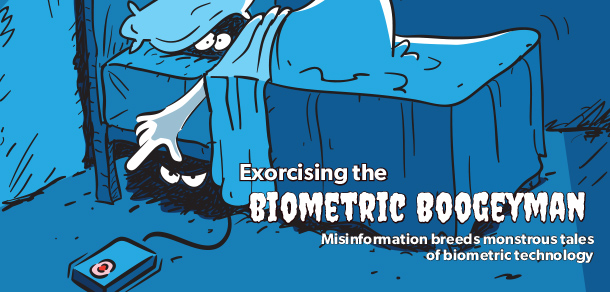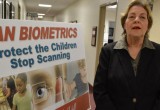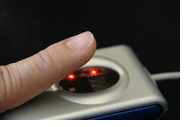Shedding light on Florida’s biometric ban
29 September, 2014
category: Biometrics, Government
The collection of biometric data in Florida public schools was prohibited under a law that went into effect this summer.
Florida Gov. Rick Scott signed the legislation, prohibiting schools from taking palm scans, iris scans, or fingerprints of kids. “We don’t know where this technology is going,” said Sen. Tom Lee, chair of the Senate Judiciary committee. “How comfortable does this legislature feel about allowing the gathering of this kind of sensitive information without knowing how that information is going to be used in the future?”
For Florida State Rep. Jake Raburn (R – Valrico) one of the bill’s sponsors, it’s a privacy issue. “No one, including the federal government, should be allowed access to our students’ personally identifiable information,” Raburn said. “This legislation will protect this sensitive information and prevent its misuse.”
The Pinellas County school district, near Tampa, uses palm scanners to move kids through lunch lines. Barbara Dalesandro, a food service technology coordinator for the district, tried to convince lawmakers to reject the legislation.
“When we had cards and PIN numbers, there was constant fraud. Other students always drained the accounts. There was a significant loss of revenue in that regard,” Dalesandro said. “We’ve been using palm scanning for four years with no problems from our parents.”
Dalesandro said the biometric data is purged as students graduate or withdraw from the district, and it can be destroyed upon request. Her plea, however, seemed to fall on deaf ears.
State Sen. Dorothy Hukill (R – Port Orange) said she sponsored the bill because she wants to protect kids from having their identity stolen and not finding out about it until adulthood.
“You can’t change your palm scan. You can’t change your iris scan,” Hukill said. “These are unique physical and behavioral characteristics that cannot be changed. The question is why do we need this?”
Hukill told Senators 15 to 20 states are mulling the use of biometrics, understanding that once the information is collected, “you can’t go back.” She argued that not enough is known about biometrics to allow schools to use this form of data collection – even if parents say it’s okay.
Lawmakers did debate whether an all-out ban was needed.
“Wouldn’t it be more appropriate to be regulating this and allowing parents an option than to stop the program altogether?” asked State Sen. Darren Soto (D – Kissimmee).
Hukill replied that most people have no idea what the use of biometric information means, and even those who do understand it shouldn’t have the choice to participate – for now. “I don’t think we have protections in place. I don’t think we have all of the information available to know what the long-term ramifications would be,” Hukill said. “We have no idea what the health ramifications will be long term. Think of a kid having their iris scanned getting on and off the school bus four times a day.”
The bill actually does a lot of things relating to student privacy, based on recommendations from Florida’s Education Commissioner. It requires the use of student identification numbers in lieu of Social Security numbers, and it prevents the collection of information from a student or student’s family regarding political or religious affiliation, voting history and biometric data.
It also gives Pinellas County an additional year to use palm scanners while the district comes up with an alternative system.
The Foundation for Florida’s Future, founded by former Florida Gov. Jeb Bush, promotes digital learning materials and 21st century technology in the classroom. But the foundation is glad to see the brakes being put on biometrics.
“Advancements in technology and connectivity bring new opportunities for student learning, but they also create a much different world than we knew even just a decade ago,” said foundation executive director Patricia Levesque. “Technology has changed over the years and it’s important to take a fresh look at how we’re protecting student data.”
Those in the biometrics industry are flummoxed by the ban.
“My frustration is that no one focuses on the benefits of this technology and they just look at the risk,” says Phil Scarfo, vice president of sale and marketing at Lumidigm. “If you focus only on the risks of using technology, companies like Goggle and Facebook wouldn’t exist.”
Even the benefits of using biometrics in school lunch lines was dismissed without looking at any of the benefits, Scarfo says. “It’s simple and secure and an easy way to get kids through the lunch line without adding complexity,” he explains. “Kids can’t remember passphrases or PINs, and if you issue a smart card they’ll lose it.”
Making sure schools have enough time to feed students is always a challenge and using biometrics helps get them through line quickly, says Mizan Rahma, founder and CEO at M2SYS. Schools have a limited time to feed 300 students, just imagine the chaos if these kids have to remember their passcodes and it slows everything down,” he adds. “It adds significant value.”
Political fallout elsewhere?
Janice Kephart is worried about the precedent that the Florida law presents. Kephart is the founder and CEO at the new Secure Identity & Biometrics Association and has served in the nation’s capital on a number of identity projects, including REAL ID.
“Uber-privacy folks have a lot of support in the states and if this becomes an issue with the ACLU then you will see a significant ramp up,” Kephart explains.
Florida has been a trendsetter for legislation like this in the past and it could set the stage for similar legislation across the country, Kephart says. “You have a base of folks that are organizing and it’s troublesome. We have a job to educate on the reality of the situation,” she adds.
Illinois, Wisconsin and Arizona have passed laws that require parental notification and consent to use biometric in schools. This type of legislation isn’t a problem, says Kephart, because parents should be notified of when a biometric system is being deployed to avoid possible problems from the start.
But the biometrics industry has some work to do to let people know how the technology works and what benefits it provides. Also legislators need to keep an open mind when looking at these issues.
Politicians, including the sponsors of the Florida bill, did not return calls to reporters or industry groups, Kephart says. “The easy road is to use people’s fears to get votes, the harder road is to be a public servant. Failure to address questions on biometrics shows a lack of due diligence,” she adds. “They don’t have to agree but they have to agree to be educated.”




